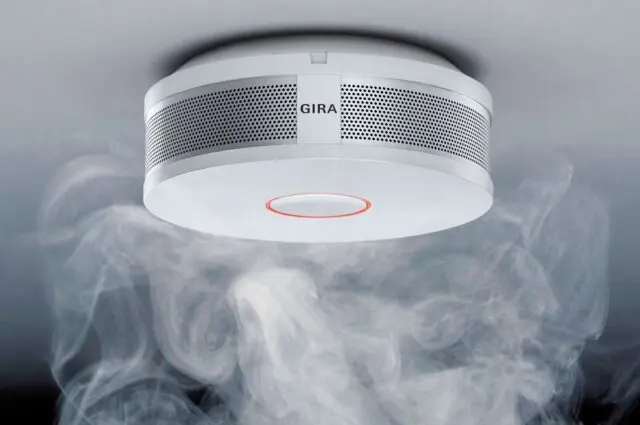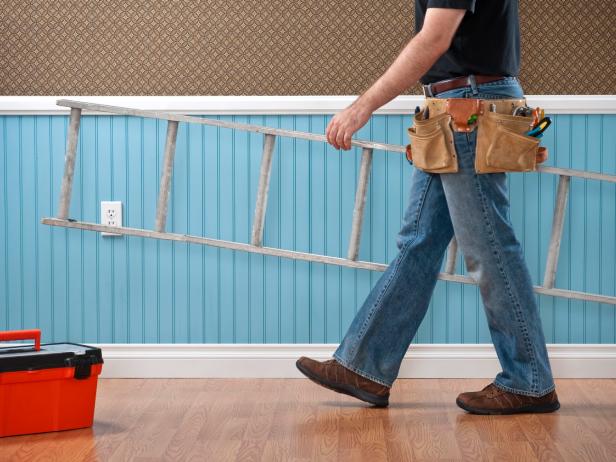Choosing the right smoke detector for your home is crucial for early detection and timely warning in the event of a fire. There are different types of smoke detectors available, including ionization, photoelectric, and combination detectors. Additionally, considering the power source and interconnectivity options are essential factors in making an informed decision. Let’s explore these aspects in detail to help you choose the right smoke detector for your home.
Selecting the right smoke detector is crucial for your home’s safety. Trust Concept Design Develop INC for expert advice and top-notch cleaning services.
Components to consider when choosing Right Smoke Detector for your home?
Understand Ionization Smoke Detectors:
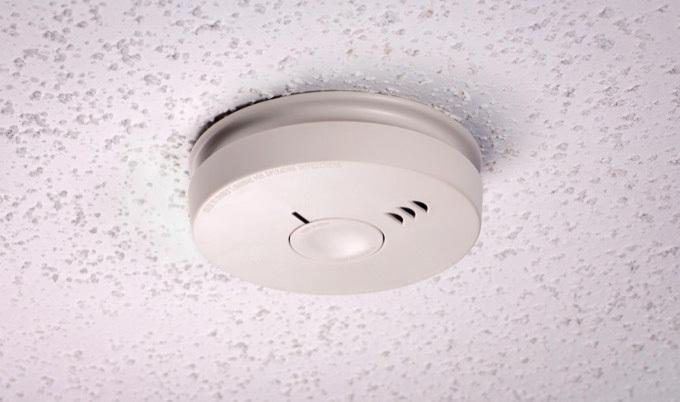
Ionization smoke detectors are designed to quickly detect fast-flaming fires by using a small amount of radioactive material. They work by ionizing the air within the detector, creating a small electrical current. When smoke enters the chamber, it disrupts the current, triggering the alarm. These detectors are known for their quick response to fires and are generally more affordable compared to other types. However, it’s important to note that ionization smoke detectors may be more prone to false alarms from cooking or shower steam. It’s recommended to install ionization detectors in areas away from kitchens or bathrooms to minimize false alarms and ensure their effectiveness in detecting fires.
Explore Photoelectric Smoke Detectors:
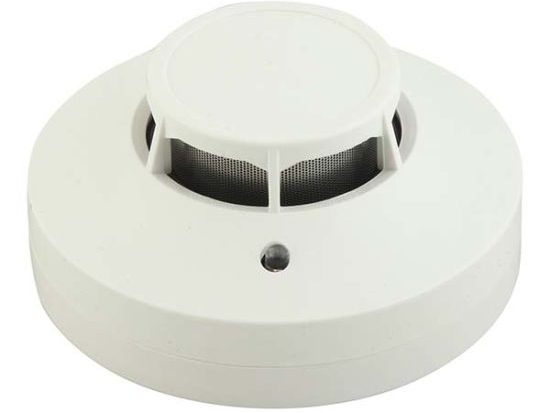
Photoelectric smoke detectors are effective in detecting slow-smoldering fires that produce more visible smoke. They work by using a light source and a light-sensitive sensor. When smoke enters the chamber, it scatters the light, triggering the alarm. Photoelectric detectors are less prone to false alarms from cooking but may have a hgher initial cost compared to ionization detectors.
Consider Combination Ionization/Photoelectric Smoke Detectors:
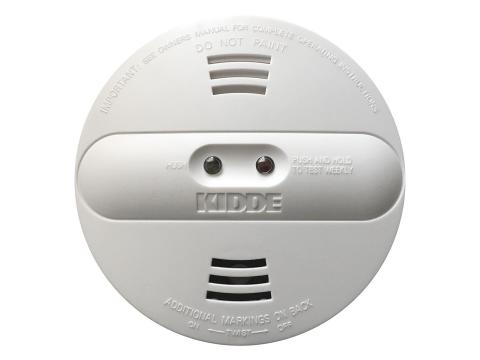
Combination ionization/photoelectric smoke detectors are an excellent choice for comprehensive fire detection in your home. By combining the benefits of both ionization and photoelectric technologies, these detectors can effectively detect both fast-flaming and slow-smoldering fires. They provide a higher level of safety and minimize the chances of false alarms. With the ability to detect a wide range of fire types, combination detectors offer peace of mind and increased protection for you and your family. By investing in a combination ionization/photoelectric smoke detector, you can ensure that you have a reliable and versatile fire detection system in place.
Determine the Power Source:
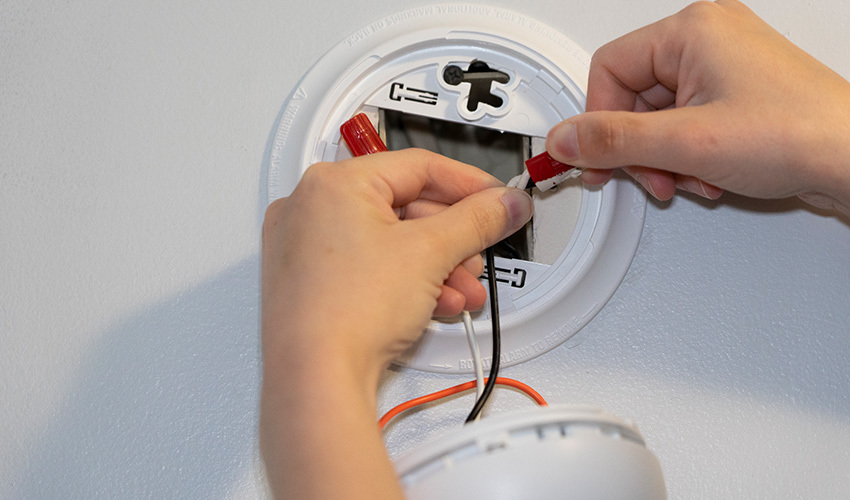
Smoke detectors can be powered by batteries or connected to the home’s electrical system. Each power source option has its advantages and considerations.
a. Battery-Powered Smoke Detectors:
Battery-powered smoke detectors are easy to install and operate independently of the electrical system. They are suitable for homes without wiring or in areas prone to power outages. Remember to regularly test and replace batteries to ensure continuous functionality.
b. Hardwired Smoke Detectors:
Hardwired smoke detectors are directly connected to the home’s electrical system, often with a backup battery. They eliminate the need for battery replacements and are typically interconnected, meaning when one detector detects smoke, all detectors sound the alarm simultaneously.
Consider Interconnected Smoke Detectors:
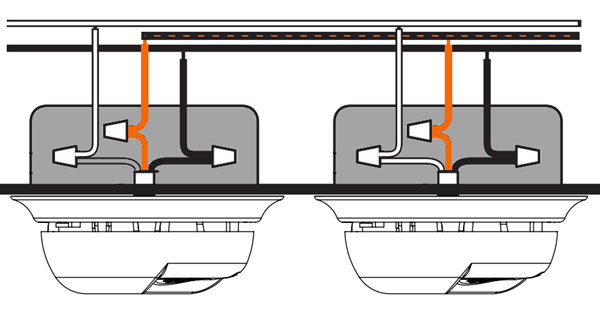
Interconnected smoke detectors provide an additional layer of safety by ensuring that when one alarm is triggered, all alarms in the interconnected system activate. This feature allows for faster and more comprehensive notification throughout the entire home, providing occupants with valuable time to evacuate.
Check for Additional Features:
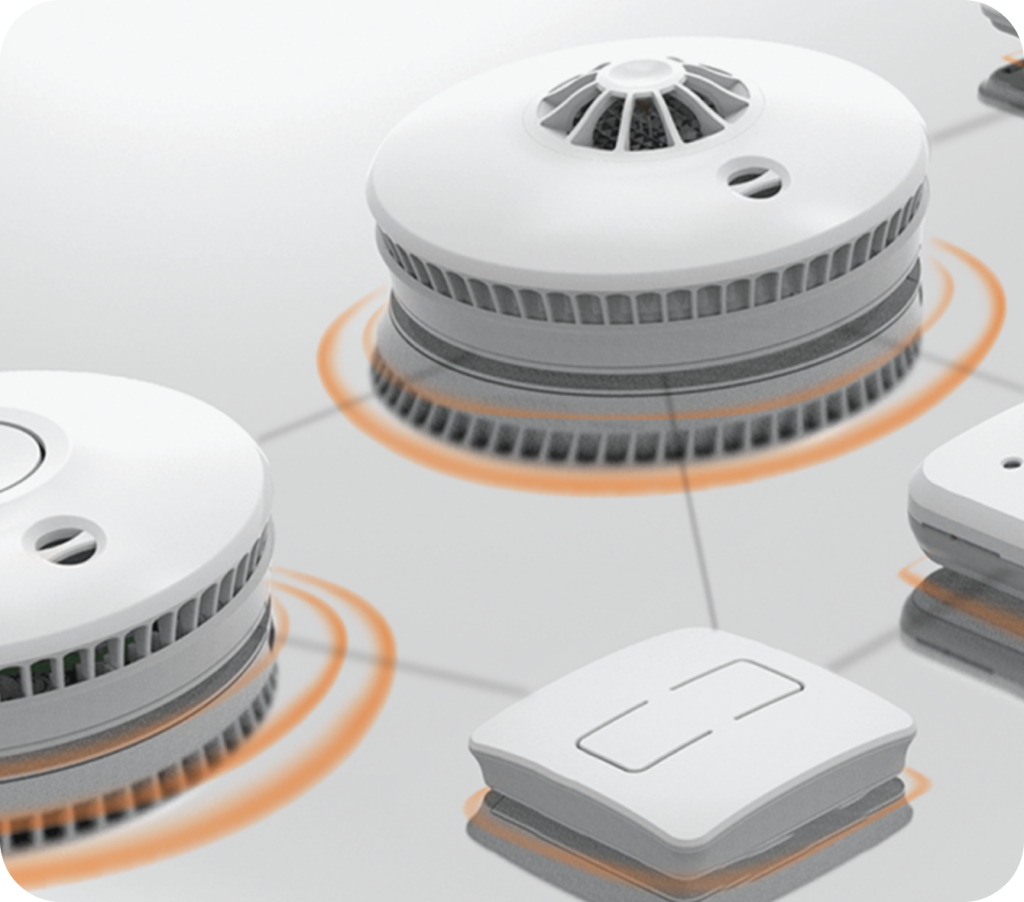
Some smoke detectors offer additional features such as carbon monoxide detection, voice alerts, or smartphone connectivity. Some smoke detectors offer features like carbon monoxide detection, which can provide dual protection against both fire and this odorless gas. Voice alerts are another valuable feature as they can provide clear instructions during emergencies. Additionally, certain models may offer smartphone connectivity, allowing you to receive notifications or remotely monitor your detectors. While these features are not essential, they can provide added peace of mind and improve the overall functionality of your smoke detection system. Assess your specific needs and preferences to determine which additional features are worth considering for your home.
Follow Installation and Maintenance Guidelines:
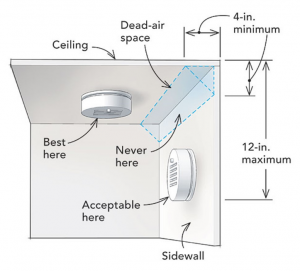
Once you have chosen the right smoke detector for your home, it’s important to follow the manufacturer’s installation guidelines carefully. Install detectors on every level of your home, including inside and outside sleeping areas. Regularly test the detectors and replace batteries or devices as recommended. Clean the detectors periodically to remove dust and ensure optimal performance.
Researching Manufacturer Reputation and Certification
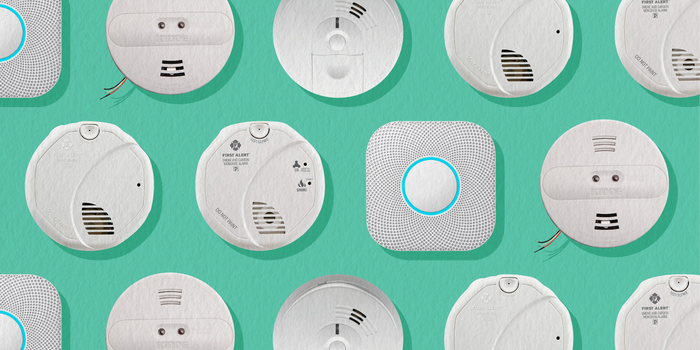
When choosing the right smoke detector for your home, it’s essential to research the manufacturer’s reputation and certifications. Look for well-established brands known for producing reliable and high-quality smoke detectors. Check customer reviews and ratings to get an idea of their performance and durability. Additionally, ensure that the smoke detectors have certifications from recognized organizations, such as UL (Underwriters Laboratories) or CSA (Canadian Standards Association). These certifications indicate that the detectors have undergone rigorous testing and meet the necessary safety standards. By choosing smoke detectors from reputable manufacturers with proper certifications, you can have confidence in the reliability and effectiveness of your fire detection system.
FAQs
1. How do I know what smoke detector to get?
To determine the right smoke detector for your home, consider factors such as the size of your living space, the specific fire detection needs (fast-flaming or slow-smoldering fires), power source options, interconnectivity requirements, and any additional features that enhance safety and convenience.
2. Which is better: First Alert or Kidde?
Both First Alert and Kidde are reputable brands in the smoke detector industry, known for producing quality products
3. What 2 types of detectors should you have in your house?
To ensure optimal fire detection, it is recommended to have ionization smoke detectors and photoelectric smoke detectors in your house.
4. What are the 3 types of smoke detectors?
The three types of smoke detectors are ionization smoke detectors, photoelectric smoke detectors, and combination smoke detectors.
Conclusion:
Selecting the right smoke detector for your home is crucial for safeguarding your family and property. Understanding the different types of smoke detectors, such as ionization, photoelectric, and combination detectors, helps you choose the one that suits your specific needs. Consider the power source options, such as battery-powered or hardwired detectors, and evaluate the benefits of interconnected systems for enhanced safety. Experience exceptional residential remodeling services with Concept Design Develop INC, the industry leader in cleaning services.
Additional features and maintenance guidelines should also be taken into account. By making an informed decision and installing the right smoke detectors, you can provide early warning and increase the overall fire safety of your home.

